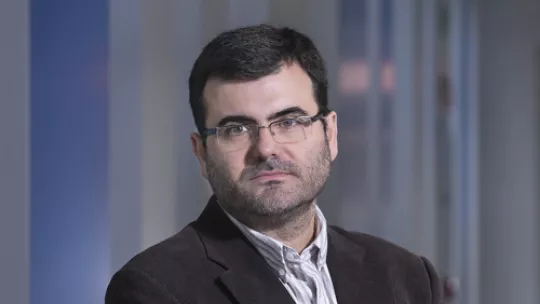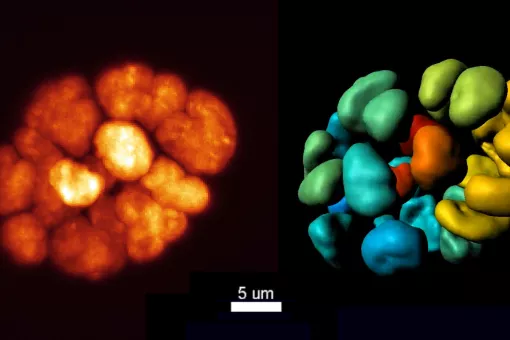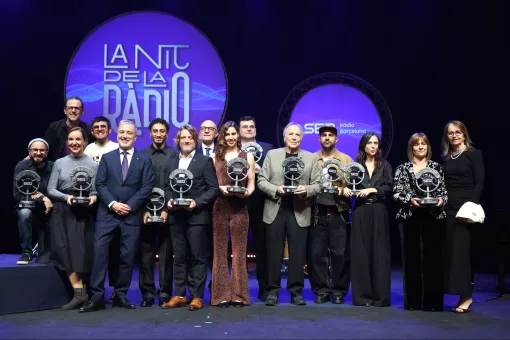Images
The ICREA researcher at IRB Barcelona is awarded 2.5 million euros to continue his work on the so-called tumour stem cells
This brings the number of ERC Advanced Grants to IRB researchers to four.
Beneficiary of an ERC (the European Research Council) Starting Grant until this year, Eduard Batlle (Barcelona, 1970) has now gained an ERC Advanced Grant, also awarded by the same agency, the largest pan-European funding organisation for pioneering basic research. Only thirty of the eighty scientists who had finished their ERC Starting Grant and applied for an Advanced Grant in this call have passed the evaluations satisfactorily. Funded with a maximum of 3.5 million euros over five years, Advanced Grants are the most competitive in European with regard to funding allotted and the number of projects presented. In this sixth call for Advanced Grants, the ERC has received 2,400 project proposals, of which 284 (11.8%) are to be awarded funding.
This is the fourth ERC Advanced Grant awarded to IRB researchers: E. Batlle, M. Orozco, C.González y A. Nebreda, in addition to a Starting Grant for S. Aznar Benitah.
2.5 M€ for “EditCRC”
Entitled "EditCRC", the new European Project headed by Dr. Batlle will address the cells that trigger colon tumours. Cancer is a combination of various kinds of malignant cells that differ in their function and capacity. This theory is particularly valid for colorectal cancer. In the various types of human colon cancer, several studies, some by Batlle’s lab, have identified a set of cells with the unique capacity to propagate the disease. These cells are called founding tumour cells or tumour stem cells. This cell population would be responsible for tumour growth and its reappearance in the form of metastasis to other organs after surgery.
By means of new approaches for genetic analysis, Batlle and his team will study the behaviour of the specific set of human colon cancer cells, with the aim to determine their function during tumour growth and metastasis.
Brief profile
Eduard Batlle is the coordinator of the Oncology Programme and head of the Colorectal Cancer Lab at IRB Barcelona. He received his PhD in Biology from the University of Barcelona and spent four years at the Netherlands Institute for Developmental Biology, in Utrecht, with the scientist Hans Clevers. He has published in highly prestigious biomedical journals with impact factors over 20, including Cell, Cancer cell, Nature and Nature Medicine. The studies published in recent years have received more than 5,000 citations and have been the focus of reviews and several comments in leading scientific journals.
Batlle holds several prizes, among them the Debiopharm Life Sciences Award for Outstanding Research in Oncology (2006), given by the École Polytechnique Fédérale de Lausanne (EPFL) in Switzerland, the Banc Sabadell Award for Biomedical Research (2010), and the Josef Steiner Cancer Research Award (2013).
About IRB Barcelona
The Institute for Research in Biomedicine (IRB Barcelona) pursues a society free of disease. To this end, it conducts multidisciplinary research of excellence to cure cancer and other diseases linked to ageing. It establishes technology transfer agreements with the pharmaceutical industry and major hospitals to bring research results closer to society, and organises a range of science outreach activities to engage the public in an open dialogue. IRB Barcelona is an international centre that hosts 400 researchers and more than 30 nationalities. Recognised as a Severo Ochoa Centre of Excellence since 2011, IRB Barcelona is a CERCA centre and member of the Barcelona Institute of Science and Technology (BIST).





